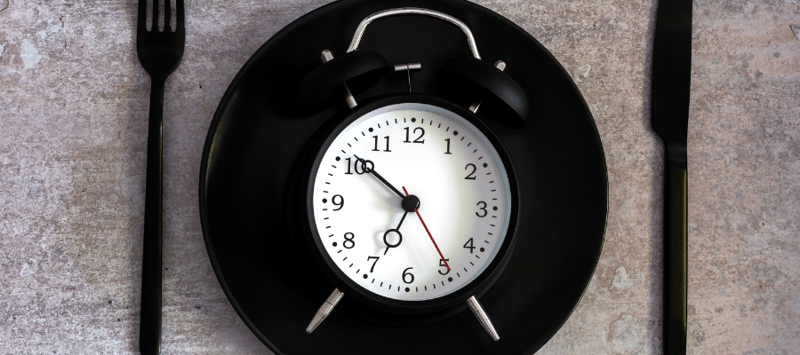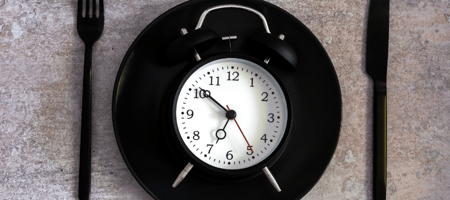
Are you preparing for a religious fasting period?
Fasting is an integral part of many religions, including Islam, Christianity, and Judaism. While fasting can be spiritually rewarding, it can also present challenges to our physical well-being.
After successfully leading more than 3,000 individuals on their health journey, we have climbed this mountain many times and would love to provide the information to make this process go smoothly, so that it can be a time where you can focus on your spiritual journey while maintaining your health journey.
We will offer tips for leading up to, during, and after the fasting period. We understand the pain and difficulties that can come with fasting, and our expertise will guide you through this process.
Whether you're new to fasting or have done it before, there are a few key things you can do to make the most of your fast. By the end of this article, you will have a better understanding of how to properly prepare and navigate the fasting period while maintaining good nutrition and health.
So, let's dive in and discover how to make your fasting period as smooth and healthy as possible.
Tips for Preparing to Fast Leading up to Religious Fasting
Preparing to fast can be an intense experience, both mentally and physically. It's important to take the time to properly prepare your mind and body for the journey ahead. Whether you're observing a religious fast or embarking on a personal spiritual journey, the period leading up to the fast is crucial for a successful experience.
Gradually adjust your eating habits
When preparing for a fasting period, it's essential to gradually adjust your eating habits rather than suddenly changing them. If you don’t already, start by having smaller, more frequent meals throughout the day rather than of having larger meals. This will help your body adjust to the changes in your eating patterns and prevent as many hunger pangs during the fasting period.
Increase your fluid intake
During many fasts, you will be fasting from dawn until dusk, so it's essential to stay hydrated. To prevent dehydration, aim to drink at least 8-10 cups of water or other fluids, such as milk or fruit juice, throughout the non-fasting hours. Waking up to hydrate before dawn can be helpful to ensure you are optimally hydrated.
Staying hydrated during fasting is crucial, especially during the long hours of fasting. It's best to avoid caffeinated drinks like coffee and tea as they can increase the risk of dehydration.
Eat a balanced diet
A balanced diet is essential to keep your body healthy and energized during your fasting. Before fasting, focus on consuming a balanced diet that includes plenty of fruits, vegetables, whole grains, healthy fats, and lean protein. This will provide your body with the nutrients it needs to function properly during the fasting period.
Avoid sugary and fatty foods
It's important to avoid consuming sugary and fatty foods before fasting, as they can lead to feelings of lethargy and sluggishness during the fasting period. Instead, opt for foods that are high in complex carbohydrates and fiber, such as whole grain bread, brown rice, and vegetables.
Talk to your doctor if you have any health concerns
If you have any health concerns, such as diabetes or high blood pressure, it's important to talk to your doctor before fasting. They can provide advice on how to manage your condition during the fasting period and ensure that fasting is safe for you.
Get enough sleep
Getting enough sleep is crucial to prepare your body for fasting. Aim to get at least 7-8 hours of sleep per night to ensure that your body is well-rested and ready for the fasting period. Less food means less energy so make sure you’re getting your sleep to avoid energy crashes.
Start incorporating light exercise
Incorporating light exercise, such as walking or yoga, into your daily routine leading up to fasting can help improve your overall health and prepare your body for the physical demands of fasting. However, avoid intense exercise during the fasting period, as it can lead to dehydration and fatigue.
Healthy Tips During Religious Fasting Periods
Religious fasting periods can be a time of spiritual renewal and reflection, but they also require a significant adjustment to your diet and lifestyle.
It's important to prepare your body and mind for the fasting period and take care of yourself during the non-fasting hours to ensure a healthy and successful experience.
In this section, we will discuss some healthy tips for navigating energy and nutritional demands during religious fasting periods.
Break your fast with power foods like dates and water
Breaking your fast with dates and water is a traditional practice during religious fasting periods, particularly during Ramadan. Dates provide a quick source of energy to replenish the body after a long day of fasting. They are also rich in fiber, potassium, and antioxidants, which can help to prevent constipation and improve overall health. It's recommended to start with a few dates and a glass of water, and then wait for a few minutes before eating a larger meal.
Some examples of alternative foods and drinks that can be consumed to break a fast:Herbal teas - Herbal teas like chamomile, peppermint, ginger, or lemon balm can be soothing to the digestive system and help ease the body back into eating.Bone broth - Bone broth is a nutrient-dense liquid that is rich in minerals and amino acids. It can be an excellent option for breaking a fast as it's gentle on the digestive system.Smoothies - Smoothies made with fruits, vegetables, and healthy fats like avocado or coconut oil can be a great way to reintroduce solid foods after a fast.Fresh fruit - Fresh fruits like watermelon, cantelope, grapes, berries, or papaya are high in water content and easy to digest, making them a great option for breaking a fast.Nuts and seeds - Nuts and seeds like almonds, cashews, or chia seeds are a good source of protein and healthy fats, and can be a satisfying option to break a fast.
Drinking water is also essential for rehydrating the body after a long day of fasting.
It is important to choose foods that are nutritious and provide sufficient energy to sustain the body throughout the day.
Eat a balanced meal
During the non-fasting hours, it's important to consume a balanced meal that includes complex carbohydrates, protein, and healthy fats to provide sustained energy and prevent hunger pangs. Some examples of complex carbohydrates include brown rice, whole grain bread, and quinoa, while sources of protein can include lean meats, fish, eggs, beans and legumes.
Healthy fats can be found in foods such as avocados, nuts, and olive oil.
A balanced meal will help to regulate blood sugar levels, reduce hunger cravings, and provide sustained energy throughout the fasting period.
Avoid fried and high-sugar foods
While it may be tempting to indulge in fried or high-sugar foods during religious fasting periods, these types of foods can cause energy crashes and leave you feeling sluggish.
Fried foods are high in saturated fats and can cause digestive issues, while high-sugar foods can cause blood sugar spikes and subsequent crashes, which can affect energy levels. While they may feel great in the moment, you won’t have the same energy to carry you through the fasting period as if you eat a more balanced meal.
Instead, focus on nutrient-dense foods that will provide sustained energy, such as fruits, vegetables, whole grains, lean protein, and healthy fats.
It's also important to avoid overeating during the non-fasting hours, as this can lead to discomfort and digestive issues during the fasting period.
How to Regulate Your Eating After Religious Fasting
After a period of religious fasting, it is important to strategically regulate your eating habits to avoid overindulging and overwhelming your body.
Gradual reintroduction of foods, maintaining a balanced diet, and staying hydrated are crucial in ensuring a healthy transition back to regular eating habits.
In this section, we will expand on these three important tips to help you regulate your eating after religious fasting.
Reintroduce foods gradually
When the religious fasting period is over, it's important to be cautious when reintroducing foods to your diet. This is especially true if you’ve been fasting for long periods of time. Your digestive system may not be used to certain foods or larger portions after a period of fasting, so it's recommended to start with small portions and gradually increase as your body adjusts.
Additionally, it's important to listen to your body and pay attention to any discomfort or reactions to certain foods.
Continue to eat a balanced diet
It's important to continue eating a balanced diet even after the religious fasting period is over. Fruits, vegetables, whole grains, healthy fats, and lean protein are all important sources of nutrients that your body needs to function properly.
Eating a balanced diet can also help you maintain a healthy weight and reduce the risk of chronic diseases.
Stay hydrated
Staying hydrated is crucial for overall health, and it's important to continue to drink plenty of water and other fluids after the fasting period has ended.
Drinking fluids can help regulate body temperature, transport nutrients throughout the body, and support various bodily functions. Aim to drink at least 8-10 cups of water or other fluids per day, fasting or not, and adjust this amount based on your activity level and climate.
How a Nutrition Coach Can Help You Navigate Religious Fasting
Religious fasting done without proper preparation and navigation can have significant impacts on one's physical health and well-being. While many people observe fasting as part of their religious practice, they may not know how to prepare their bodies prior to fasting, properly fuel their bodies during the non-fasting hours, or how to transition back to regular eating after the fast. This is where a nutrition coach can be helpful.
Our team has helped thousands of people in all walks of life navigate their lifestyles and develop healthy habits and prepare to tackle personal challenges and maintain a strong journey to better health. A nutrition coach can work with individuals to develop a personalized plan that meets their nutritional needs -- while still respecting their religious beliefs and practices.
Even better, a knowledgeable Nutrition Coach can assist with meal planning and offer recipe ideas to ensure a balanced and satisfying diet. They can provide guidance on how to properly fuel the body during the non-fasting hours with nutrient-dense foods and adequate hydration.
During the fasting period, a nutrition coach can provide strategies to help manage hunger and cravings, such as incorporating more fiber and protein into the pre-dawn meal to promote satiety. They can also advise on the types of foods to avoid during the fast, such as high-sugar and high-fat foods that can cause energy crashes.
After the fast, a nutrition coach can provide guidance on how to reintroduce foods gradually to avoid digestive discomfort and help individuals maintain a balanced diet. They can also address any concerns or questions that may arise during this period.
Overall, a nutrition coach can be a valuable resource for those observing religious fasting, providing education, support, and guidance to help navigate this practice while maintaining optimal health and well-being.
Are you tired of feeling overwhelmed with nutrition and wellness challenges? Do you want to take control of your health and well-being, but don't know where to start? Consider working with a nutrition coach to get the support and guidance you need.
With personalized one-on-one coaching, you can create a plan that fits your unique needs and goals, and get the accountability and motivation you need to make lasting changes.
Don't let your health take a back seat - invest in yourself and your future today.

With a knack for turning complex nutrition facts into engaging, relatable content, she’s on a mission to make healthy living fun and accessible. Backed by a stellar team of Dietitians and Nutritionists, Abby breathes life into OnPoint’s mission, inspiring others to embrace the transformative power of good nutrition. Her infectious enthusiasm and innovative approach make her a driving force in the journey towards better health for all.



